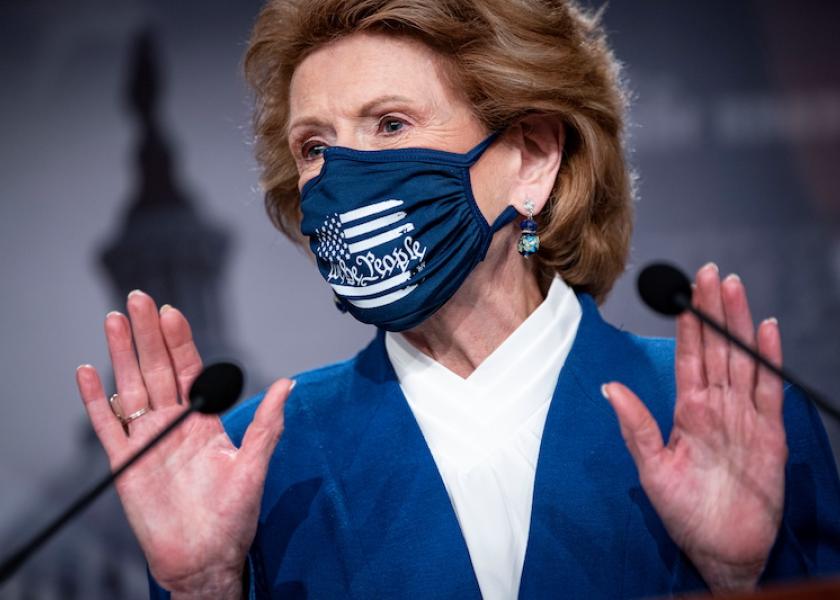Sen. Stabenow Supports CFAP Freeze and Review

Senate Agriculture Committee Chairwoman Debbie Stabenow (D-Mich.) says she supports the Biden Administration’s move to freeze payments under the Coronavirus Food Assistance Program (CFAP) in order to review the rules put in place in the waning days of the Trump Administration.
USDA posted notice on their CFAP web page Wednesday night that program payments will stop while the administration reviews all rules put forth in the lame duck portion of the Trump Administration. USDA will continue to take applications for the program in the interim. Most directly affected is $2.3 billion in leftover CFAP 1 & 2 dollars that were opened up for contract growers and others who were left out of earlier programs.
“I think it's important, and I agree with the idea of pausing and reviewing where we are now,” Stabenow says. “There's dollars that have not have not been used. Where can we make sure that we are effectively using the dollars that remain?”
Stabenow says the legislation creating the CFAP programs call for specific assistance which was never given out. She wants those programs to be addressed with the remaining dollars.
“There are things that we wrote in that they should do that they did not do, like supply chain issues - one and a half billion dollars that would deal with some of the issues that are challenging our farmers who, because they're in the bulk supply chain, aren't able to then move surplus milk to the food bank and end up dumping that milk or turning their fruits and vegetables under. In addition to that, support for our farm workers and processors in terms of PPE that we had in there and that money was not used for that, and the support for our smaller processors and producers to retool given what has happened in the challenges in the food supply chain,” Stabenow says.
In addition to the remaining CFAP 1 & 2 dollars, Congress in December approved an additional $13 billion in ag aid, including a third round of CFAP payments.
A USDA spokesman said the agency will work as quickly as possible to complete the review, but offered no timeline for completion and did not respond when asked if USDA anticipated any changes to the CFAP program.
Related:
USDA Freezes $2.3 Billion Supplemental CFAP







